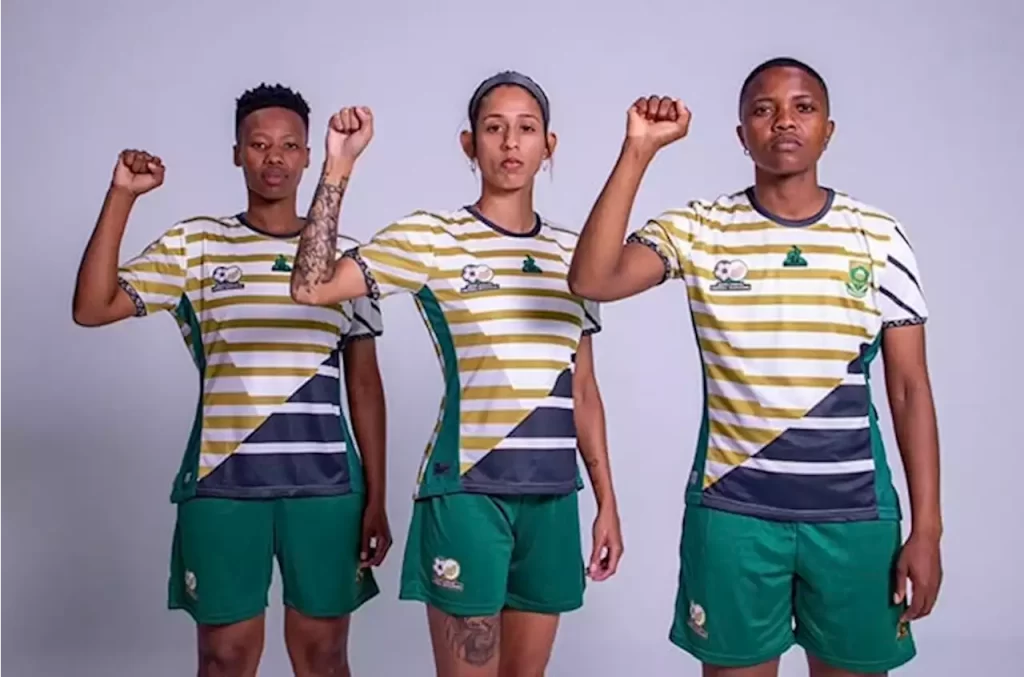In a bold move aimed at drawing attention to the challenges faced by women in football, the South African national women’s team, Banyana Banyana, boycotted their match against Botswana yesterday afternoon. The boycott was driven by the players’ concerns over the poor condition of the football pitch and their contractual issues surrounding World Cup appearances. This collective action has put the spotlight on the need for improved playing conditions and fair treatment of women footballers.
Banyana Banyana’s decision to boycott the match against Botswana stems from their frustration over the inadequate state of the football pitch on which they were scheduled to play. The players expressed concerns about the uneven surface, poor maintenance, and safety hazards that could potentially jeopardize their well-being and performance. They believe that the conditions of the pitch were unsuitable for competitive play and demanded better standards.
Additionally, the players have raised contractual concerns related to their World Cup appearances. Fifa confirmed recently that every player participating at the global showpiece will pocket in excess of R500,000 for playing in the tournament. Unlike previous tournaments, where the respective national associations were paid by Fifa and were responsible for player remuneration, this time the world body will pay the players directly.
Banyana Banyana’s players however also want SAFA to chip in with its own financial incentive, over and above what many, including Safa’s Chief Financial Officer, Gronie Hluyo, view to be an already generous remuneration package from Fifa.
Over the years Banyana Banyana athletes have often voiced their dissatisfaction with SAFA over issues such as compensation, sponsorship opportunities, and the overall support provided for their participation in international tournaments. They seek fair treatment and improved contractual arrangements that recognise their contributions and dedication to representing their country at the highest level.
The boycott serves as a powerful statement by the players, highlighting the urgent need for better infrastructure and improved working conditions for women footballers. It underscores the call for gender equality in the sport and emphasizes the importance of fair treatment and support for women athletes.
The actions of Banyana Banyana have resonated with fellow athletes, fans, and women’s football advocates, drawing attention to the persistent challenges faced by women in the game. The boycott has ignited a broader conversation about the unequal treatment of women athletes, including disparities in playing conditions, remuneration, and opportunities to thrive in their respective sports.
The SAFA now faces the responsibility of addressing the concerns raised by Banyana Banyana. Constructive dialogue and proactive measures are necessary to rectify the pitch conditions, ensuring that women footballers have access to safe and suitable playing surfaces. Additionally, SAFA must work to improve contractual arrangements for the players, providing fair compensation, sponsorship opportunities, and supportive structures to enhance their participation in international competitions.
The boycott by Banyana Banyana serves as a catalyst for change in women’s football, urging governing bodies, sponsors, and associations to prioritize the needs and rights of women athletes. It is an opportunity to foster a more inclusive and equitable environment within the sport, where women are provided with the same opportunities, resources, and recognition as their male counterparts.
The onus is now on SAFA and relevant stakeholders to engage in meaningful discussions, address the concerns of the players, and take concrete steps towards gender equality in football.
